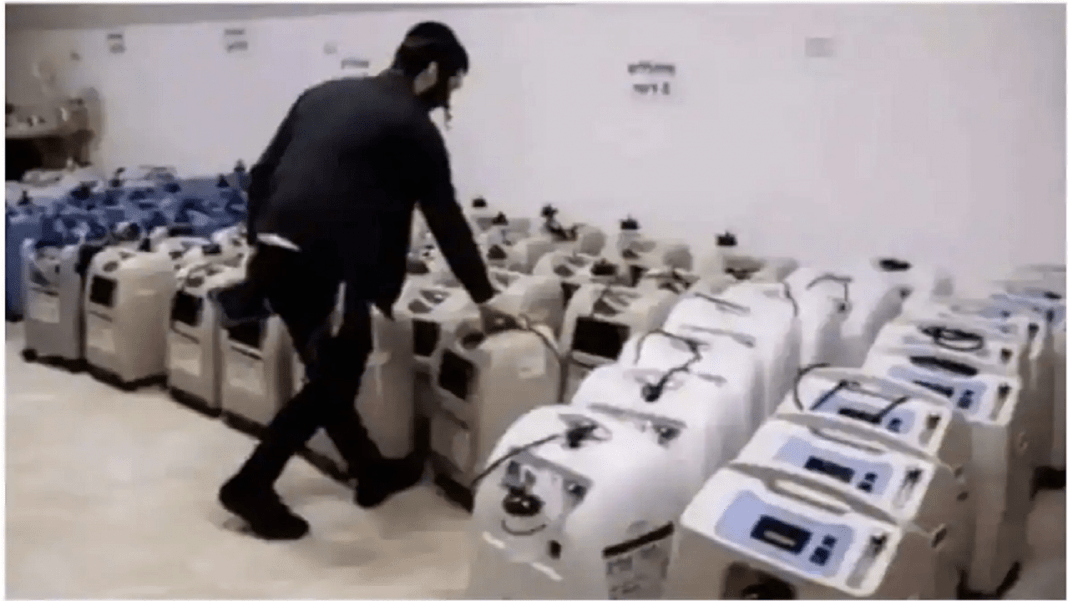The Supreme Court today stayed the Delhi High Court order which had termed the imposition of IGST on oxygen concentrators which are imported by individuals as gifts from abroad as “unconstitutional”.
The bench led of Justices DY Chandrachud and MR Shah issued notice returnable in four weeks. The Supreme Court has stayed the operation of the Delhi High Court order which had held that imposition of IGST on oxygen concentrators that are imported by individuals and are received by them as gifts [i.e. free of cost] for personal use, is unconstitutional.
The apex court observed that it is a debatable issue whether Article 14 is applicable to matters related to taxation policy.
Attorney General KK Venugopal appearing on behalf of the petitioners submitted that on 28 May 2021, at the Forty-Third meeting of the GST Council, a decision was taken to constitute a Group of Ministers to scrutinize the need for “further relief to Covid-19 related individual items immediately”. The Group of Ministers is to submit its report by 8 June 2021. It was submitted that the judgment of the High Court trenches upon a pure issue of policy. It has been further submitted that the exemption which has been granted in respect of the concentrators which are imported by the State or its agencies falls in a clearly distinct classification.
The Delhi High Court, while holding that the IGST imposed on import of oxygen concentrators for personal use is unconstitutional, had said: “This is a George Floyd moment for the citizens of this country. The refrain is ―I can’t breathe‖, albeit, in a somewhat different context and setting.”
A divisional bench of Justice Rajiv Shakdher and Justice Talwant Singh had noted: “The logical sequitur of this would be that persons who are similarly circumstanced as the petitioner, i.e., those who obtain imported oxygen concentrators as gifts, for personal use, cannot also be equated with those who import oxygen concentrators for commercial use.”
The petition before the High Court was filed by Gurcharan Singh an 85-year-old person challenging the IGST on the import of oxygen concentrators as gifts for personal use. Singh opposed the 12% IGST imposed on an oxygen concentrator sent as a gift from his nephew in the US.
Senior Advocate Arvind Datar, who was appointed as Amicus Curiae in the matter by the High Court, had submitted: “The right to life encompasses within it, the right to health. The right to health includes within it, the right to affordable treatment. The State has not only a duty but a positive obligation is cast upon it to ensure that the health of its citizens is duly protected.
“While there is no right in law to claim exemption from taxes, however, once the State invokes the provisions of Section 25 (Power to grant exemption from duty)of the Customs Act such delegated legislation can be judicially reviewed,” Datar added.
Whereas, counsel appearing for the state contended, “several measures have been taken which include exemption from customs duty and extension of concessions qua IGST in respect of specified goods imported into the country.
“The imposition of IGST on imported oxygen concentrators, which are gifted, and are for personal use, does not violate Article 21 of the Constitution. If this argument of the petitioner is accepted, it will lead to absurd consequences in as much citizens will attempt to seek exemption from property tax, and food items since both housing and food items have been considered as a facet of the right to life as encapsulated in Article 21 of the Constitution,” counsel for the state added.
However, bench had observed, “The Courts and the State have to adopt a humanistic approach, which, in our view, is a facet of Article 21 of the Constitution. The failure to do so both, by the Court and by the State, would lead to an unbridgeable chasm between law and justice, resulting in, disruption of social order.”
The bench had further directed, “To obviate misuse of the oxygen concentrators, by the petitioner and/or persons similarly circumstanced, she/he/they would have to furnish a letter of undertaking to the officer designated by the State that the same would not be put to commercial use.”
Source: ILNS


